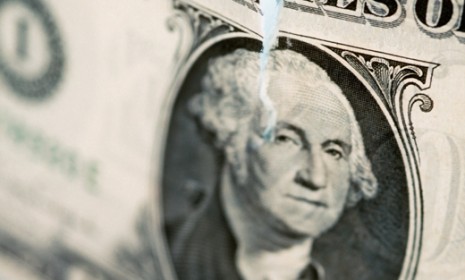Could killing cash save the economy?
Scrapping paper money would allow the Fed to slash interest rates below zero and jumpstart economic growth, argues Matthew Yglesias at Slate

A free daily email with the biggest news stories of the day – and the best features from TheWeek.com
You are now subscribed
Your newsletter sign-up was successful
"Eliminating paper money could end recessions," says Matthew Yglesias at Slate. For decades, it's been clear that cutting interest rates stimulates the economy by encouraging people to spend rather than save. "But there is a problem with this simple recession-fighting formula. The number zero." The Fed has already slashed interest rates to a record low between 0 and .25 percent. If interest rates go below zero — "in effect a tax on holding cash in the bank" — Americans would pull their cash out of financial institutions "and store it in shoeboxes instead. But what if you couldn't withdraw cash" because there was no cash? Here, an excerpt:
Now we come to the miracle of the cashless society... What if all transactions were electronic, so the only way to avoid keeping money in a negative-rate account was to go out and buy something with the money? Well, then, we would have solved our depression problem. Too much unemployment? Lower interest rates below zero, Americans will start spending and investing again, the economy will grow, and unemployment will go back down to its "natural rate."
Read the entire article at Slate.
The Week
Escape your echo chamber. Get the facts behind the news, plus analysis from multiple perspectives.

Sign up for The Week's Free Newsletters
From our morning news briefing to a weekly Good News Newsletter, get the best of The Week delivered directly to your inbox.
From our morning news briefing to a weekly Good News Newsletter, get the best of The Week delivered directly to your inbox.
A free daily email with the biggest news stories of the day – and the best features from TheWeek.com
-
 How the FCC’s ‘equal time’ rule works
How the FCC’s ‘equal time’ rule worksIn the Spotlight The law is at the heart of the Colbert-CBS conflict
-
 What is the endgame in the DHS shutdown?
What is the endgame in the DHS shutdown?Today’s Big Question Democrats want to rein in ICE’s immigration crackdown
-
 ‘Poor time management isn’t just an inconvenience’
‘Poor time management isn’t just an inconvenience’Instant Opinion Opinion, comment and editorials of the day